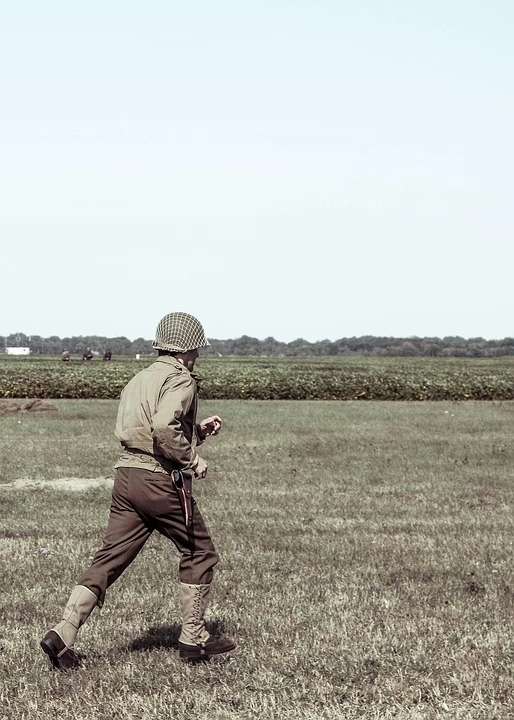Women Who Changed the World: Unsung Heroines in History
Throughout history, countless women have played pivotal roles in shaping society, yet their contributions often go unrecognized. This article aims to highlight some of these unsung heroines, celebrating their achievements and the legacies they left behind. From scientists and activists to warriors and leaders, these women’s stories inspire us to appreciate the diverse narratives that have woven humanity’s tapestry.
1. Introduction
For centuries, women’s roles have been largely marginalized in mainstream historical narratives. While figures like Marie Curie, Harriet Tubman, and Joan of Arc are celebrated, numerous other women have made profound impacts on their communities and the world. This article will shed light on a selection of these unsung heroines from various fields and time periods.
2. The Pioneer: Ada Lovelace
Career: Mathematician and Writer
Ada Lovelace (1815-1852) is often considered the first computer programmer due to her work on Charles Babbage’s early mechanical general-purpose computer, the Analytical Engine. Lovelace foresaw the machine’s potential beyond mere number crunching, envisioning that it could create music and art.
Contribution
Lovelace’s Notes on the Analytical Engine included what is now recognized as the first algorithm intended for implementation on a computer, marking a significant milestone in the history of computing. Despite her groundbreaking contributions, Lovelace was largely forgotten until the late 20th century.
3. The Warrior: Nzinga Mbande
Career: Queen of Ndongo and Matamba
Nzinga Mbande (1583-1663) was an African queen who expertly navigated the challenges of colonialism. Leading her people against Portuguese colonization in Angola, Nzinga became an iconic symbol of resistance.
Contribution
Nzinga’s diplomatic skills and military strategies helped sustain her kingdom’s autonomy for decades. She forged alliances with the Dutch and adopted male dress to command respect in a patriarchal society, ultimately becoming a powerful figure in African resistance against European imperialism.
4. The Artist: Artemisia Gentileschi
Career: Painter
Artemisia Gentileschi (1593-1656) is often regarded as one of the most significant Baroque painters. Her work often features strong female protagonists, reflecting her personal experiences and feminist ideals.
Contribution
Gentileschi’s paintings challenged the gender norms of her time, showcasing women in powerful roles, often drawn from biblical and mythological stories. Despite facing numerous challenges as a female artist in a male-dominated field, her work has gained recognition for its emotional depth and technical prowess in recent years.
5. The Scientist: Mary Anning
Career: Paleontologist
Mary Anning (1799-1847) was a pioneering fossil collector and paleontologist whose discoveries in Lyme Regis, England, changed the scientific understanding of prehistoric life. Anning discovered important fossils, including the first complete Ichthyosaurus skeleton.
Contribution
Despite her groundbreaking discoveries, Anning faced gender-based barriers in the male-dominated scientific community. Her work laid the foundation for modern paleontology, and today she is celebrated for her significant contributions to the field.
6. The Activist: Wangari Maathai
Career: Environmentalist and Political Activist
Wangari Maathai (1940-2011) was the first African woman to receive the Nobel Peace Prize, awarded in 2004. Maathai founded the Green Belt Movement in Kenya, which focused on environmental conservation and women’s empowerment.
Contribution
Her grassroots movement helped plant over 51 million trees, fighting deforestation while empowering women economically and socially. Maathai’s work has inspired global movements for environmental sustainability and women’s rights, solidifying her legacy as a transformative leader.
7. The Explorer: Jeanne Baret
Career: Botanist and Explorer
Jeanne Baret (1740-1807) was the first woman to circumnavigate the globe. Disguised as a man, Baret joined Louis Antoine de Bougainville’s expedition to document new plant species.
Contribution
Baret’s extensive botanical knowledge and perseverance enabled her to collect and document numerous specimens while contributing significantly to the expeditions’ scientific goals. Her story demonstrates the challenges women faced in science and exploration during the 18th century.
8. The Philanthropist: Esther Morris
Career: Women’s Suffrage Activist
Esther Morris (1814-1902) was a key figure in the women’s suffrage movement in the United States. Recognized as the first woman to hold an official office—Justice of the Peace—in Wyoming, she played a crucial role in the women’s right to vote.
Contribution
Morris successfully campaigned for women’s suffrage in Wyoming Territory, leading to the groundbreaking 1869 law that granted women the right to vote. Her efforts laid the groundwork for women’s suffrage movements across the nation.
9. The Philanthropist: Clara Barton
Career: Nurse and Humanitarian
Clara Barton (1821-1912) founded the American Red Cross and played a crucial role in providing medical care on the battlefield during the American Civil War.
Contribution
Barton’s dedication to humanitarianism and disaster relief has saved countless lives. Her work established the American Red Cross as a prominent organization and set standards for emergency response.
10. The Educator: Maria Montessori
Career: Physician and Educator
Maria Montessori (1870-1952) developed the Montessori Method of education, which emphasizes student-led learning and practical life skills.
Contribution
Her innovative approach has left a lasting impact on early childhood education worldwide. Montessori’s work has inspired educators to focus on the holistic development of the child, fostering independence and creativity.
11. The Innovator: Hedy Lamarr
Career: Actress and Inventor
Hedy Lamarr (1914-2000) was not only a celebrated actress but also an inventor whose work laid the groundwork for wireless communication technologies.
Contribution
Alongside composer George Antheil, Lamarr developed a frequency-hopping spread spectrum technology, initially intended for military communications during World War II. Although her invention was not recognized during her lifetime, it became a precursor to Bluetooth and Wi-Fi technologies.
12. The Diplomat: Eleanor Roosevelt
Career: Political Figure and Activist
Eleanor Roosevelt (1884-1962) transformed the role of the First Lady and became an advocate for civil rights, women’s rights, and human rights.
Contribution
Her involvement in the United Nations and her role in drafting the Universal Declaration of Human Rights solidified her legacy as a champion for social justice and equality. Roosevelt’s commitment to humanitarian issues has inspired generations of activists.
13. The Writer: Zora Neale Hurston
Career: Author and Anthropologist
Zora Neale Hurston (1891-1960) was an influential figure in the Harlem Renaissance, known for her rich portrayals of African American life and culture.
Contribution
Her novel “Their Eyes Were Watching God” is a classic of American literature, exploring themes of gender, race, and identity. Hurston’s work continues to resonate, highlighting the nuanced experiences of Black women in America.
Conclusion
The women featured in this article, along with countless others, have made contributions that have shaped our world in profound ways. By shining a light on these unsung heroines, we not only honor their legacies but also inspire future generations to explore their potential and make a difference. Recognizing women’s diverse experiences and achievements is vital in creating a more inclusive narrative of history. Women have always been changemakers, and it is time their stories are told.
References
- Lovelace, A. (2022). The Enigma of Ada Lovelace. Journal of Historical Computing.
- Nzinga, M. (2021). Queens of Africa: The Stories of Africa’s Powerful Women. African History Review.
- Gentileschi, A. (2020). Female Artists of the Baroque Era: A Study of Gender and Art. Art History Perspectives.
- Anning, M. (2019). Fossils and Femininity: Mary Anning’s Impact on Paleontology. Journal of Women in Science.
- Maathai, W. (2023). The Green Belt Movement: Lessons for Sustainability. Environmental Journal.
- Baret, J. (2018). Jeanne Baret: The First Woman to Travel Around the World. Historical Explorations in Botany.
- Morris, E. (2021). Pioneering Women in Politics: The Case of Esther Morris. Women and Politics Review.
- Barton, C. (2019). Clara Barton: A Woman of Action in the Face of Adversity. Nursing History.
- Montessori, M. (2020). The Montessori Method: Revolutionizing Education. Educational Innovations Journal.
- Lamarr, H. (2020). Hedy Lamarr: The Actress Who Changed Technology. Journal of Women in Technology.
- Roosevelt, E. (2022). Eleanor Roosevelt: A Legacy of Advocacy and Leadership. Political Studies Review.
- Hurston, Z.N. (2019). Their Eyes Were Watching Zora: A Study of Identity and Race in Literature. African American Literature Review.
This article highlights just a few of the many women whose significant contributions have shaped our history and continues to influence modern society. Their stories remind us that women’s voices and actions have always been integral to the progress of humanity.


























Add Comment